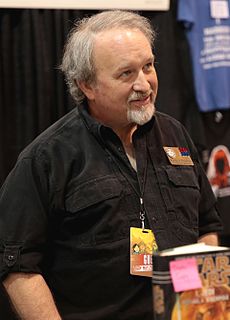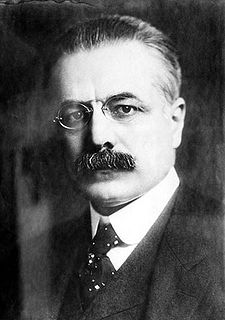A Quote by Gregory Benford
Electromagnetic theory and experiment gave us the telephone, radio, TV, computers, and made the internal combustion engine practical - thus, the car and airplane, leading inevitably to the rocket and outer-space exploration.
Related Quotes
It's so easy to demagogue the issue and make someone who speaks out against the internal-combustion engine sound like an insane communist, when the truth is that the internal-combustion engine is the biggest threat to my life in the next 25 years, in terms of what it's doing to our environment and how it's depleting the ozone layer and so forth.
The theory I propose may therefore be called a theory of the Electromagnetic Field because it has to do with the space in the neighbourhood of the electric or magnetic bodies, and it may be called a Dynamical Theory, because it assumes that in the space there is matter in motion, by which the observed electromagnetic phenomena are produced.
Everybody thinks an automobile needs an engine. Well, an automobile doesn't necessarily need an engine. What we do is shift electric motors into the wheels of our automobiles and so we have a completely different kind of thing where we have four independent intelligent wheels rather than a traditional internal combustion engine and power train and so on.
While greenies and their media flunkies continue to savage the gasoline-powered internal-combustion engine and rhapsodize about hybrids, hydrogen, electrics, natural gas, propane, nuclear, and God-knows-what-other panaceas, perhaps including bovine urine, there are no realistic, economically viable alternatives. None. Zero. Like it or not, as long as we remain dependent on the private automobile for transportation (roughly 80 percent of all movement in the nation is by car), we are harnessed to the IC gas engine.
There are two specific objections to use of psychedelic drugs.First,use of these drugs may be dangerous.Howev er,every worth-while exploration is dangerous-climb ing mountains,testi ng aircraft,rocket ing into outer space,or collecting botanical specimens in jungles.But if you value knowledge & the actual delight of exploration more than mere duration of uneventful life,you are willing to take the risks.
To many of us now, computers, silicon chips, data processing, cybernetics, and all the other innovations of the dawning high technology age are as mystifying as the workings of the combustion engine must have been when that first Model T rattled down Main Street, U.S.A. But as surely as America's pioneer spirit made us the industrial giant of the 20th century, the same pioneer spirit today is opening up on another vast front of opportunity, the frontier of high technology.
This country has achieved its commercial and financial supremacy under a regime of private ownership. It conquered the wilderness, built our railroads, our factories, our public utilities, gave us the telegraph, the telephone, the electric light, the automobile, the airplane, the radio and a higher standard of living for all the people than obtains anywhere else in the world. No great invention ever came from a government-owned industry.
Theory said one thing and the experiment said something different, so that was the stimulus that started me going, that there was something there to be explained, which wasn't understood and to try to see why that experiment gave the answer it did, so it was a big opportunity for a young student starting to have actually an experiment which contradicted the theory, so that's was my chance to understand that.


































